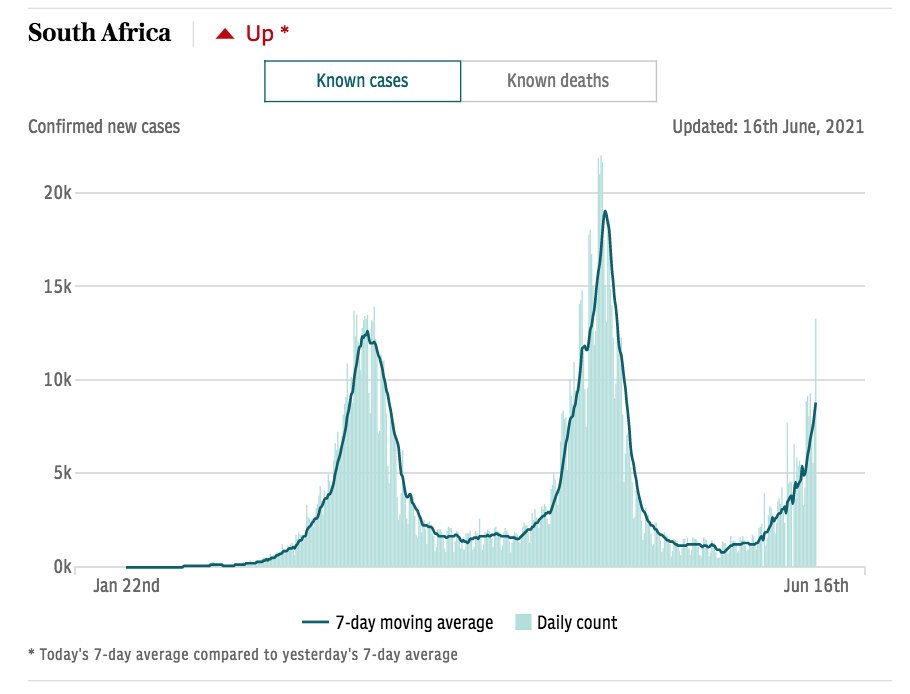🚨Africa is "in the midst of a full-blown third wave" of coronavirus, the head of @WHOAFRO has warned
Cases have risen across the continent by more than 20% and deaths have also risen by 15% in the last week
@jriggers reports ~ 🧵
telegraph.co.uk/global-health/…
Cases have risen across the continent by more than 20% and deaths have also risen by 15% in the last week
@jriggers reports ~ 🧵
telegraph.co.uk/global-health/…
"Africa is in the midst of a full-blown third wave," @MoetiTshidi said. "The sobering trajectory of surging cases should draw everyone to urgent action.
“We've seen, in India and elsewhere, how quickly Covid-19 can rebound and overwhelm health systems"
telegraph.co.uk/global-health/…
“We've seen, in India and elsewhere, how quickly Covid-19 can rebound and overwhelm health systems"
telegraph.co.uk/global-health/…
In total, the vast continent has seen five million Covid cases since the pandemic began, and 156,000 deaths.
For context, Europe - with 748 million people - has seen almost 33 million cases, and 730,000 deaths.
But experts worry Africa's caseload could be vastly underreported
For context, Europe - with 748 million people - has seen almost 33 million cases, and 730,000 deaths.
But experts worry Africa's caseload could be vastly underreported

In the main, European countries were hit harder in the first and second waves of Covid than most African nations.
But now, while vaccination campaigns in Europe are surging ahead - as in many richer parts of the world - most of Africa remains barely protected
But now, while vaccination campaigns in Europe are surging ahead - as in many richer parts of the world - most of Africa remains barely protected

In fact, of the 1.3 billion living on the continent, less than 1% of Africa's population - or almost 12 million people - have been fully vaccinated against Covid-19 to date 

Most African countries have relied on the UN-led Covax vaccine distribution scheme for vaccines.
But the scheme has faced major delays after India, the biggest producer of jabs for Covax, focused instead on tackling its own coronavirus surge
But the scheme has faced major delays after India, the biggest producer of jabs for Covax, focused instead on tackling its own coronavirus surge

However, even when vaccines are available, there have been issues actually getting the jabs in arms, the @WHOAFRO said 

For example, a lack of funding for the roll-out, technical challenges and vaccine hesitancy have meant that 23 African countries have only managed to use around half of their already limited allocations of vaccines 

That includes four of the five currently worst-affected countries: Tunisia, Zambia, Uganda and Namibia. Alongside South Africa, these countries account for 76 per cent of new cases across Africa in the last week 





The WHO stressed that what was happening was a stark illustration of vaccine inequity in action, pointing out that 85% of all coronavirus vaccines have been given in rich countries, leaving others without 

.@MoetiTshidi said that the continent welcomed the recent international vaccine pledges to donate more jabs later in the year.
However, added that "if we are to curb the third wave, Africa needs doses here and now."
@jriggers has more
telegraph.co.uk/global-health/…
However, added that "if we are to curb the third wave, Africa needs doses here and now."
@jriggers has more
telegraph.co.uk/global-health/…
• • •
Missing some Tweet in this thread? You can try to
force a refresh














